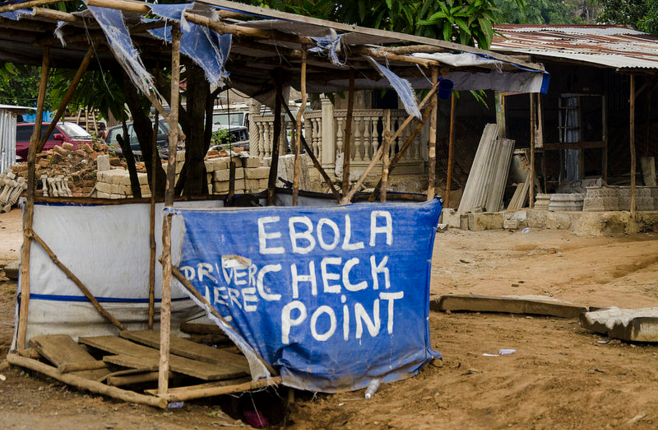Open source has played a key role in defeating Ebola in Sierra Leone.

Flickr Photo - Will Margett
IT expert and NetHope consortium employee Emerson Tan ( Emerson Tan ) and his colleagues arrived in Sierra Leone in October 2014, where the Ebola epidemic was rampant at the time. Since the beginning of the year, at least 30,000 cases of infection have been recorded in West Africa, of which about 9,000 cases were in Sierra Leone. Approximately one third of the infected people died, so the world community began to make significant efforts to prevent the growing problem.
The NetHope Consortium, which united more than 40 IT companies from around the world and whose employee was Tan, did not set any specific tasks for it. They literally announced something like the following - go there and see what can be done there. On the spot, it turned out that the medical infrastructure, which was deployed practically from scratch, was seriously suffering from the lack of a financial distribution system among doctors and ordinary medical workers.
There was no shortage of the money itself, since they came in sufficient quantities from various international organizations, frightened by the possible spread of the deadly disease. The problem was that the epidemic employed more than 30,000 doctors, and in one of the poorest countries in the world, their work was deprived of system support, which made them feel at least safe and pay attention to patients with Ebola (at least 95 health workers). In the end, the sad situation with the payment of wages to doctors led to a strike with demands to raise their salaries to $ 700 a month.
')
This was not an actual problem (there was enough money), but a systemic one - there were only 8 ATMs in the country, the doctors received their salaries in cash, and, as Emerson Tan noted, had to deal with such large amounts of cash that it was easier to weigh them and find out their number "in kilograms", than to recount pieces of paper manually. It was unthinkable to deliver money and arrange their distribution in the face of an epidemic, it was equally a bad idea to deploy an ATM system and invent a security system. At the UN, NetHope was in a hurry, and they in turn pressed Tana, believing that the problem needed to be solved in the next few months, otherwise the country would be lost.
As a result, the team of experts decided to turn to open source, because there was no time to write their software due to the threatening situation in the country. This played a key role in solving the problem: in about two weeks, instead of several months allocated by the UN, the Tana team managed to get a working system that allowed them to control the payroll system, accounting and logistics in Sierra Leone. A biometric database of medical professionals was created, and to avoid potential contamination during fingerprinting, the team used open facial recognition software, which was called OpenBR. The final chord was the creation of a mobile payment system in which minutes of conversation played the role of money, and thus doctors were able to freely receive wages and use it with minimal effort.
For Tana himself, hard work was not without consequences. Because of the constant sleepless nights, he was forced to cheer himself up with huge portions of coffee and eventually got several health problems. But on November 7 last year, the World Health Organization was able to officially announce that during 42 years, no cases of Ebola were registered in Sierra Leone, which meant the end of the epidemic.
[Based on The Guardian ].
Source: https://habr.com/ru/post/357524/
All Articles